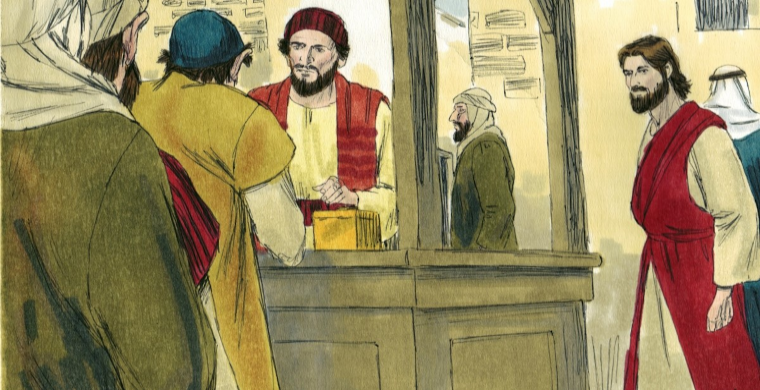The Simplicity of Justification
"I Tell you that this man, rather than the other, went home justified by God."Luke 18:14
"This man" to whom Jesus referred was one of the hated Jews who served the Roman Empire by collecting the people's taxes to be paid to their Gentile occupying overlords. Their office was regarded as almost akin to treachery and often conducted in a dishonest, self-serving manner. It would have been very unusual to find such a person in the temple. The other person to have entered the house of prayer simultaneously was a Pharisee filled with arrogance and self-righteousness. His speech before the Lord was not humble petition but a recital of his mistaken self-worth. The man presumed that his legalistic performance in life qualified himself for divine approval and reward.
The tragic verdict of the Savior was the Pharisee's bold praying about himself; this is a more common fault that may be more prevalent than we surmise, for much actual prayer is directed toward self-interest from a point of hubris in the heart that presents claims to God from a sense of entitlement and our supposed special well-deserved association with him. Genuine humility is lacking and ill-desert is not recognized. The harsh judgment of the tax collector enters many of our minds wherever notorious wickedness is discovered. Our observation of the character and conduct of certain individuals turns to contempt and translates into judgment - an attitude none of us can afford without hypocrisy.
The justification of the tax collector occurred instantly with his anxious cry to God, "God have mercy on me, a sinner." There was no ceremony or ritual or human affirmation present in his acceptance with God. His circumcision was only routine and he was most unlikely to have received John's baptism. The great prophet's ministry as Messiah's forerunner spelt out no profit to his sense of greed. But the urgent appeal to the mercy of God amounted to a saving confidence in the Lord and justification was instantaneous in the most simple way. He entered the temple burdened with sin and guilt and went home right with God.
The fact of justification occurs between a human soul and the Lord himself in intimate concord. Divine awakening in the human spirit is the exclusive work of God that is supernaturally transformed into faith unto salvation. True faith is breathed into the sinner by the Holy Spirit as a gift of God to his chosen ones. Salvation is not to be complicated by self-preparatory action or the co-operation of those designated for regeneration. It is not subject to sacramental necessity [which is essentially confirmative, and commanded by the Lord for personal assurance and public identity as Christ-folk]. Historically the church of God -nominally- has complicated the divine method of justification. We can take it from the Lord himself, who is our justification objectively, and our justifier experientially, that legalism and undue sacramentalism are a blight upon the Gospel.
The meritorious ground of our justification is entirely in Christ. J.I. Packer
END














